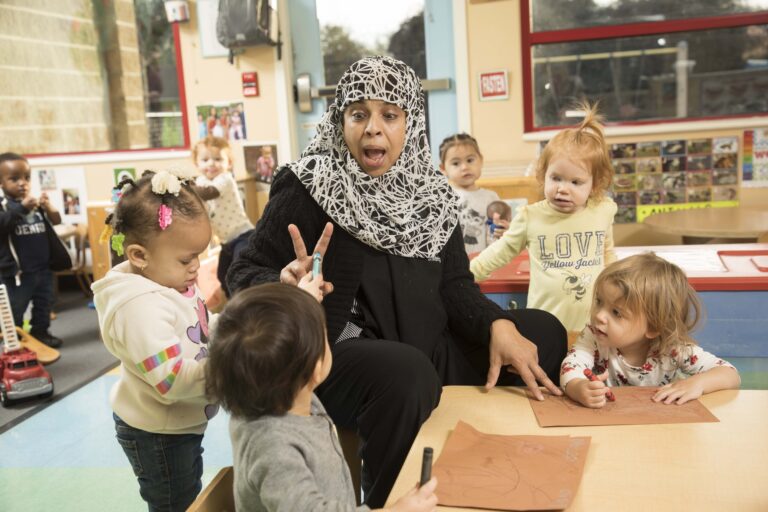As featured in The Saporta Report
The Rollins Center for Language & Literacy, a program of the Atlanta Speech School, and its free online professional development platform, Cox Campus, have been serving Atlanta and communities far beyond Georgia for the past two decades. Founded on the purpose of breaking the cycle of illiteracy for children whose families have experienced generational denied access to educational opportunity, the vision of the Rollins Center today is Literacy and Justice for All.
In 1938, Atlanta Speech School’s founder Katherine Hamm started the School seeking to bring the experience of her child, who was deaf and learned to talk and read, to every child in need of those services. Over the more than 85-year history of the School, expanding equity and access to every child has remained the driving force forward.
“The integrity of our mission comes from having been started by Mrs. Hamm, who was experiencing a personal challenge with the means to address it – and was morally compelled to make sure that every child could find their voice. ‘Find their voice’ was literal then. Today, that unconditional commitment is figurative, to ensure every child finds their voice to decide their own future and to make the greatest difference in the lives of others. The Rollins Center makes this mission possible,” says Comer Yates, Executive Director of the Atlanta Speech School.
The Speech School’s commitment to educational equity led to its role as the special education arm of Metro Atlanta public school systems from 1947 through 1975, when federal law changed special education policies and practices.
The Wardlaw School of the Atlanta Speech School then opened to serve children with dyslexia. Dyslexia, as defined by the Individual with Disabilities Education Act (IDEA) was, and is, restrictive- inherently dependent upon ZIP code, race and ethnicity.
In 1999, B Wardlaw visited the Wardlaw School to see the school his parents had funded. He questioned, from a Wardlaw School hallway, the thousands of children who would not have the opportunity to attend but who needed the services.
In 2001, a report of the National Reading Panel was published recognizing that every child could learn to read if they had access to the right kind of instruction – but that teachers were not being taught what that looked like. The Speech School saw that the national illiteracy rates reported by the Panel reflected false expectations that had been around for centuries: some children would read, and some would not.
The School had the singular expertise to meet the needs of those who would struggle to read, having spent decades working first with children who were deaf and hard of hearing, then operating as the Special Ed department of all metro Atlanta public schools, then through the Wardlaw School.
Soon after, the Rollins family stepped in. Randall Rollins’ grandchildren were at the Speech School. From rural Ringgold, Georgia himself, Rollins was compelled to support those for whom academic resources were not available.
Yates recalls, “The Rollins family came forward and put incredible trust in the Speech School. Like Mrs. Hamm, they were driven by the idea that if their children had access to this instruction, all children should have it. They made a $3 Million gift, and a charge to serve all children. We had no partner yet, no staff; only their investment and trust. We hired a brilliant reading researcher and professor from the University of Delaware – Dr. Deborah Knight.”
“We were serving 180 children in our Wardlaw School program and knew that we needed to make the experiences of each child available to every child, everywhere. We just had to figure out how,” said Dr. Knight, of the period when she was hired. “I pulled in these amazing Wardlaw teachers. These first efforts followed the Wardlaw School’s Susan Rhoades having started a small school year program teaching children to read who would not have otherwise had that opportunity.”


